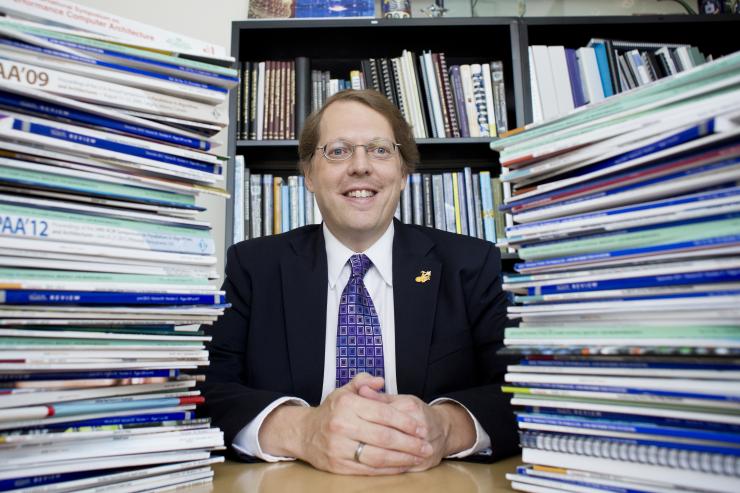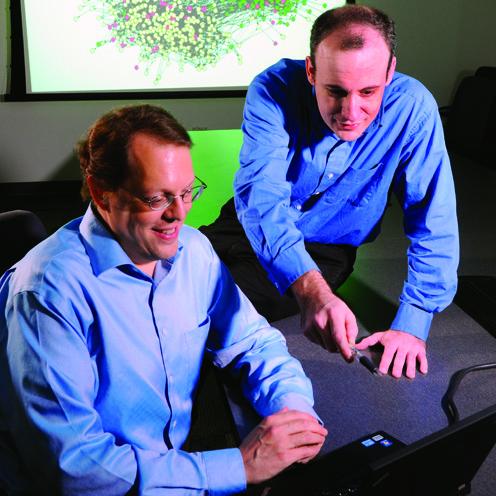Think of the perfect embedded computer. Think of a computer so energy-efficient that it can last 75 times longer than today’s systems. Researchers at Georgia Tech are helping the Defense Advanced Projects Research Agency (DARPA) develop such a computer as part of an initiative called Power Efficiency Revolution for Embedded Computing Technologies, or PERFECT.
“The program is looking at how do we come to a new paradigm of computing where running time isn’t necessarily the constraint, but how much power and battery that we have available is really the new constraint,” says David Bader, executive director of high-performance computing at the School of Computational Science and Engineering.
If the project is successful, it could result in computers far smaller and orders of magnitude more efficient than today’s machines. It could also mean that the computer mounted tomorrow on an unmanned aircraft or ground vehicle, or even worn by a soldier would use less energy than a larger device, while still being as powerful.
Georgia Tech’s part in the DARPA-led PERFECT effort is called GRATEFUL, which stands for Graph Analysis Tackling power-Efficiency, Uncertainty and Locality. Headed by Bader and co-investigator Jason Riedy, GRATEFUL focuses on algorithms that would process vast stores of data and turn it into a graphical representation in the most energy-efficient way possible.
The ultimate goal is to get an algorithmic framework that delivers supercomputer capabilities on a small, power-restricted platform.
One approach to reducing power consumption is to reduce the level of data collection. For example, when looking for a needle in a haystack, you don’t necessarily need to inspect every piece of hay. “What we’re looking at is collecting the minimal data necessary to make accurate decisions,” Bader says.
For now, the Tech team is applying GRATEFUL to social network analysis. But that same technology could also be used for any number of security applications, such as identifying hackers trying to break into a network. And, eventually, the technology developed under GRATEFUL could find its way onto smaller, more efficient computers in unmanned aerial vehicles or worn by soldiers.
The team is currently one year into a potentially five-year effort. Bader says most of the work is still in the elementary stages, but the team is developing proofs of concept software. “Our goal is to create architecture-independent software that can run across multiple hardware platforms and still perform extremely well,” he says.


The Center for High Performance Computing: From Big Data to Exascale Computing, led by Executive Director for HPC David A. Bader, is designed to bring together Georgia Tech’s interdisciplinary research and education activities in high performance computing in order to better leverage Georgia Tech’s capabilities in this area and enable solving grand challenges in computational science and engineering. (Credit: Rafterman Photography)
David Bader (left), chair of the School of Computational Science and Engineering, and GTRI principal research engineer Dan Campbell, work on addressing the computational demands of big data problems. (GT Photo: Gary Meek)
